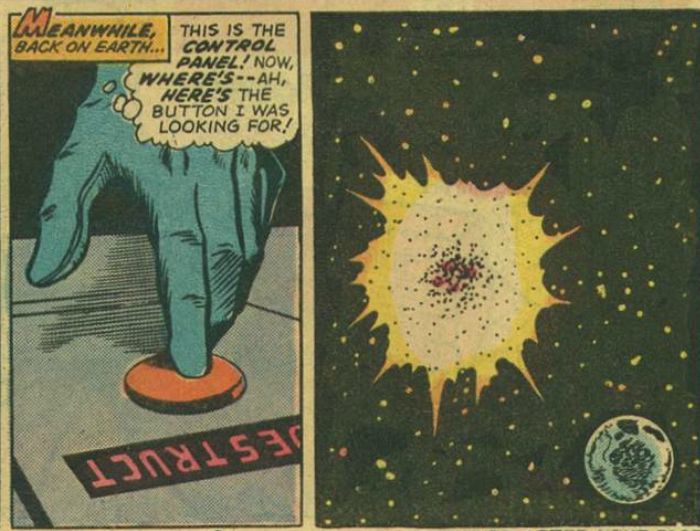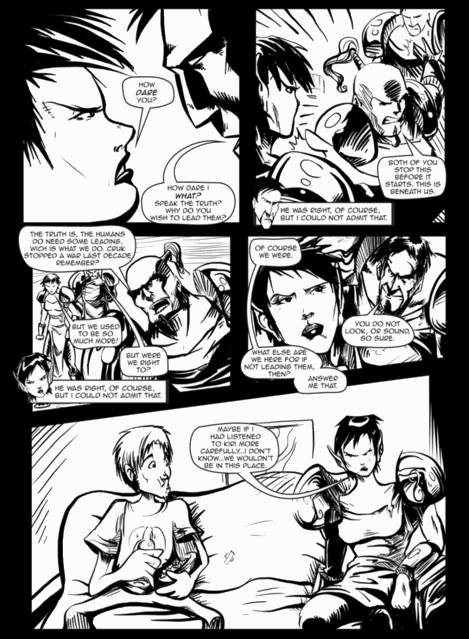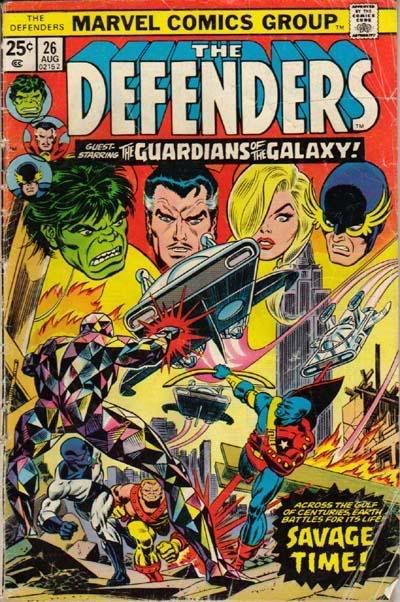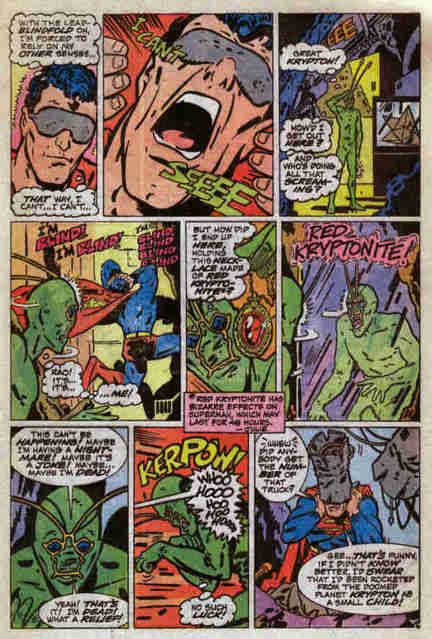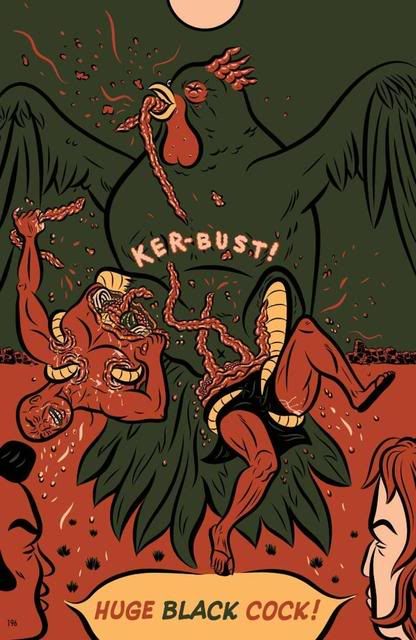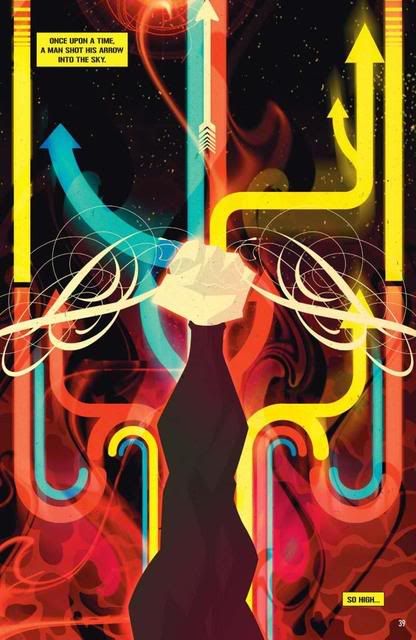 Adam Knave is an assistant editor for the third volume of Popgun, out this Wednesday. He's also a writer of prose and a webcomic writer, and from what I can tell he works his ass off. Other writers and artists have projects they describe as "boot camp," for example, but Knave, along with artist Renato Pastor and editor Lauren Vogelbaum, are planning their webcomic to be a five year boot camp, one in which they're already significantly ahead of what they have posted.
Adam Knave is an assistant editor for the third volume of Popgun, out this Wednesday. He's also a writer of prose and a webcomic writer, and from what I can tell he works his ass off. Other writers and artists have projects they describe as "boot camp," for example, but Knave, along with artist Renato Pastor and editor Lauren Vogelbaum, are planning their webcomic to be a five year boot camp, one in which they're already significantly ahead of what they have posted.
I'm still learning the interviewer ropes so I apologize for the awkward breaks and pacing in the interview--I tried to keep this first part short then realized it was in fact too short. Part one is behind the jump.
Jeff Lester: Let’s start with Popgun, because that’s in theory the stuff that’s most important to get out on time here. When did you—let’s go for the big picture. How would you describe Popgun for somebody who’s never seen it or read it?
Adam Knave: The way it was originally pitched to me, when I first came on board, that it was the graphic mix tape. And that’s been their tag since Day One. And you know, you hear something like graphic mixtape, and you say it to people, and they go, ‘so they have music?’ You know, and then you realize you’re dealing with the slow people.
But it really comes down to, it is a graphic mixtape—they actually pull that off. You know, it has all the weird joys of a great mixtape: there’s a flow to it—we’re actually trying something slightly different with the flow in Volume Three than we have in the past.
JL: Oh, yeah?
AK: Yeah, we get to play with that. Volume Two was very much: here are these cool songs that go together. Volume Three, there’s a thematic flow. There’s more of a grouping of stories going on. Because I’m going to take you from one place to the other.
And there’s always an intermission in the middle of the book which…I don’t know if this is what they were thinking of when Mark and Joe first started the book, but it gives me such fond memories of cassettes and that’s the inset cover of the cassette. And so that’s awesome! Because it’s just like the flip to the cassette map! That just makes me smile. Every time.
I’m easily pleased.
JL: That’s good. Always helpful in this line of work.
AK: You know, everyone—everyone—has made mixtapes—or I suppose at this point, playlists—for friends. And that’s really what it is—trying to find established voices doing new things, as well as brand-new voices who just really should be bigger than they are right now. And just letting them play, and seeing where it all comes to and then finding a way to mix it all together, to get a finished product that reads like it was meant.
JL: So do you guys lay down any sorts of boundaries, as far as page limits or topics, or anything like that?
AK: Yes and no? There are some boundaries for content. It is an Image book. There’s never going to be outright porn. Past that? Mmm, not really. If it’s justified in the story, we’re usually fine with it.
Page count? I think the longest thing we’ve ever had is thirty pages. I know we have a thirty pager in Volume Three, and that’s the longest anything’s ever going to go. But we also have at least one one-page story. So we’re fairly free; it’s just we have so many people and so much material that we have to put a cap on it somewhere.
JL: I would think so. It’s a pretty big slice of comics.
AK: The great thing is both—I believe it’s Volume One and Two, actually—every volume so far has had roughly 100 pages of content that gets chopped out and pushed to the next volume.
You know, you’d think we’d already have a hundred pages, we’d stop. We don’t. And in Volume Three we actually hit the physical limit to keep the price point. We hit the physical page limit.
JL: How did the story that you end up co-writing in this volume end up happening?
AK: D.J. and I go way back. I don’t know if you remember—here’s a little slice of comic history for you—Too Much Coffee Man magazine.
JL: Oh, yeah.
AK: My first-ever, like, hard-print published journalism type stuff was in an issue of that. A website I ran, we interviewed Shannon Wheeler, and I kept in touch with him because I’m shameless. It’s how you get somewhere, you know?
And then just every now and then, I’d tell him, you know: if you ever need anything done, let me know. Glad to help out.
And one day he dropped a line and said, ‘I had this guy who was going to interview somebody for it me and then he dropped out. Can you do it?’ I said, ‘Sure.’ This was a Wednesday.
He said, ‘Okay. I need you to find someone who speaks Klingon and interview them.’
And I was reading this going, ‘You want me to—am I reading this correctly?’
And he’s like, ‘Yeah, find someone who speaks Klingon, interview, but we’re going to just present the interview in Klingon with no translation. And it’s going to be really funny.’
And I was like, ‘Okay.’ Again, this is Wednesday. He says, ‘All right. I need it by Friday.’
JL: So you actually had to transcribe—conduct and transcribe—an interview in Klingon in two days.
AK: I did it over email. I actually had a friend in Atlanta who knew someone they worked with who spoke Klingon.
God bless people who live near DragonCon. That’s really the secret.
But, no, I had to proof Klingon. Which, you know, I’m sitting with a book, going, ‘You need this extra apostrophe after this q.’ Just sitting there going, ‘what the hell am I doing?’
But I ended up on the staff of that for like the two or three issues before it went under. Which I still say had nothing do with me. And the last issue—which actually never came out—was Kirkbride’s first issue.
It was one of those things where he was now the new kid, and I was now the seasoned vet of like an issue and a half. So we were like, ‘let’s do something together!’ And we just found that we write together really weirdly well.
So when he was doing Popgun, I edited his story in Volume Two. And we said, ‘we should do something together.’ So we started doing all these stories. And finding artists—which, you know exactly the fun of that. Where you go, ‘It’s for Image. There won’t be any money! Because, well, it’s Image. So there’s no pay rate. So there might be money at the back end, but won’t you do this for free for now?’ It’s an eight page story, that’s why we get someone to say yes.
So we had a bunch of stuff in the works that we thought was going to end up in Volume Two. And nothing quite got done in time. We had an artist bail on us, and all the standard things that happen in life. And we ended up finding Matteo, who…I want to ‘art marry’ him.
He’s blindingly fast. And if you look at his work…he turned those pages around in something under a page a day.
JL: Good grief. Really.
AK: He’d sent us these sketches, and they were kind of very airy and all over the place. And we’re like, ‘there’s not going to be enough room! How is this going to work?’ And he says, ‘Oh no, those were just the sketches. I’m re-drawing them!’
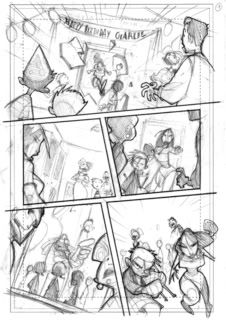
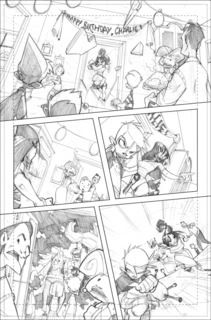
And we’re like, “You’re going to…okay?’ You know, what do you say. ‘You go do the thing you do that frightens us, and we’ll be over here, screaming.’ And he just knocks them out of the god-damned park.
JL: That’s really amazing to know, particularly since the storytelling is really energetic—the angles and perspectives are all over the place, and everything’s always moving. You guys have just a few pages so of course it’s got to move, but there’s maybe half a panel where somebody isn’t screaming or running or flying.
AK: And I will admit, this is mostly my fault. I come from prose which, you know, that sentence makes it sound like another planet, and I guess in comics it is. I was at New York Comic Con talking to people, and I’d be like, ‘oh, did you want a copy of my book?’ Because I had my book with me (because I’m a whore, and I don’t mind that) and people were going, ‘It’s just prose? Why would you do that?’
So I hadn’t been writing many comics, because…when you grow up and you love comics, you want to write comics but you don’t know any artists, and after a while, you stop trying. So I hadn’t been really working in comics, so I was very much a wordy bastard. (As you might be noticing from this interview. It’s a curse.)
So the script kind of had these six pages that really should’ve been more like twelve. And it kind of forced ‘Teo to just make everything move that much faster. And when we saw it, we’re like, ‘Oh my god, you actually pulled this off. And we’re so sorry we did this to you!’
You know, we’re doing another one for Volume Four. Same characters. We’re doing a sequel. Not so much a sequel, as another story with these lunatics. We’re taking twelve pages and we’re writing about the same amount of script we did for the first one. Just because we figured we’d actually let him draw.
Tomorrow in Part II: More about Popgun, webcomics, etc.
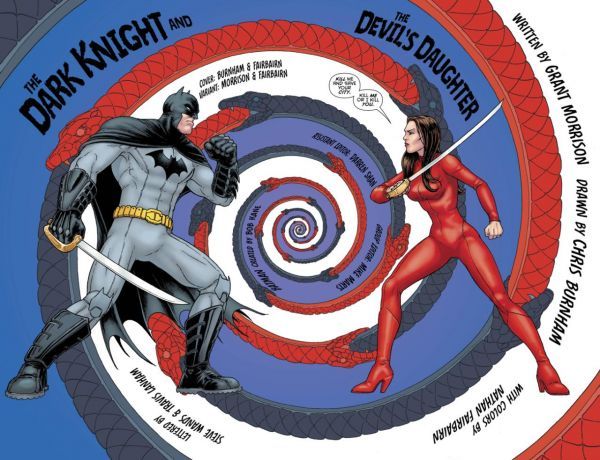 Mmmm, delicious tail... From Batman, Inc. #13, art by Chris Burnham
Mmmm, delicious tail... From Batman, Inc. #13, art by Chris Burnham

